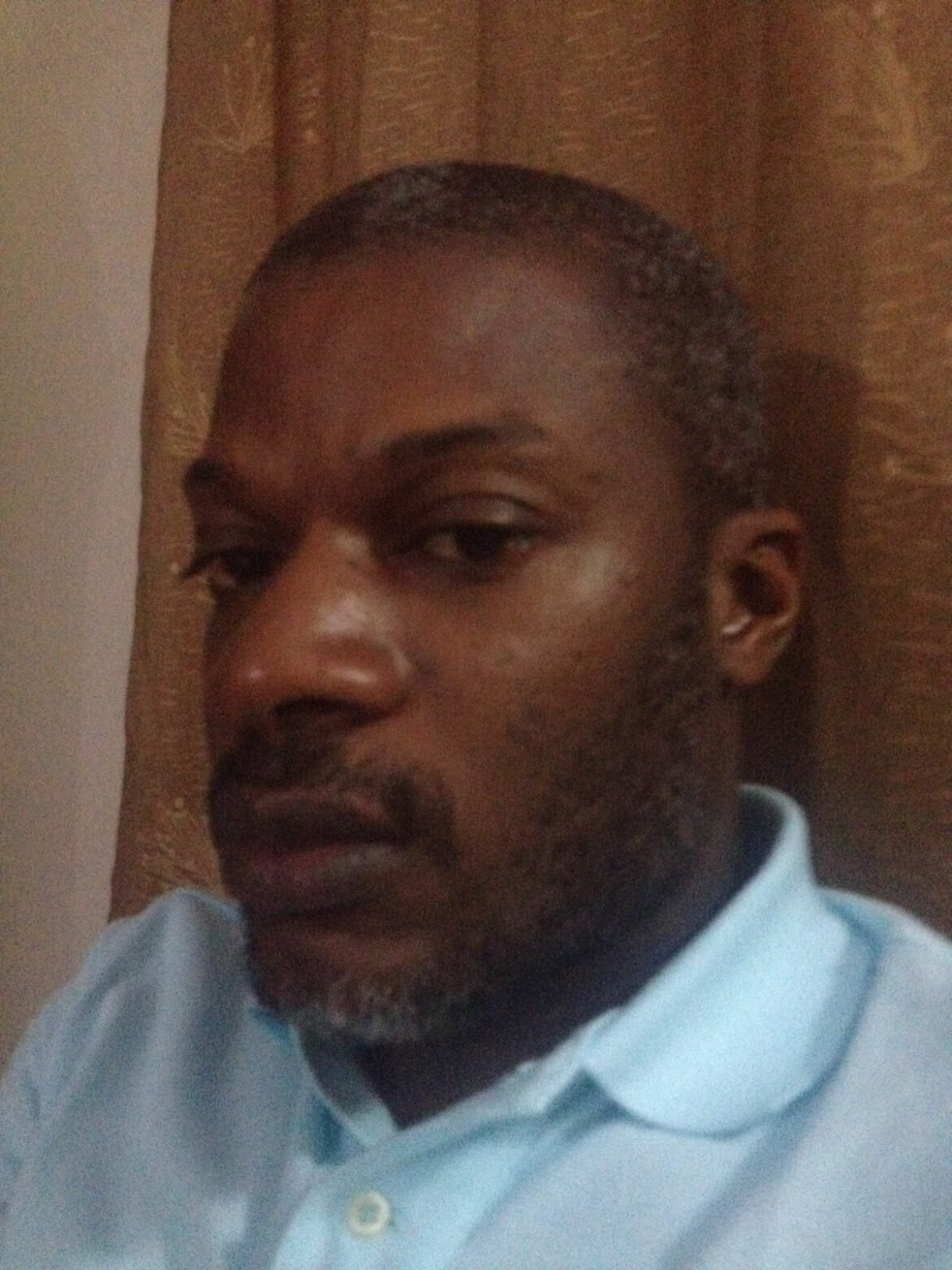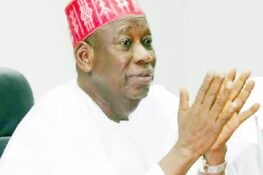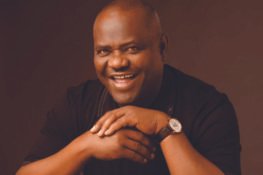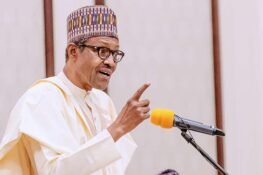Three years into its government, the ruling All Progressives Congress appears to be tightening its grip on the political space in a way that couldn’t be more different from the politics of the ousted People’s Democratic Party. Central characters in the formation of APC, President Muhammadu Buhari and Bola Tinubu are slowing reenacting games of past and are ensuring that the contest for power or more appropriately, the foundation for party politics is built on a regional basis where alliances have to be forged and pacts signed to form a government and ruling coalition. It was a political process that for 16 years, the PDP and its military backers had tried to do away with by artificially coming up with a concept of rotating the presidency between the six geopolitical zones of the country.
Under this arrangement, every political party had to have a national outlook and spread but it was one concept that wouldn’t stand the test of time. In the a way, the PDP was trying to promote nationalism, typical military mindset, but didn’t know how. It had no central or unifying message. The reality was that politicians across the country who had no common purpose except for individual ambitions found it hard to bond and at the same time sell a political vision to voters that were just as diverse and distinct from one another. It was a vision that proved impossible to articulate to voters. And it was the denial of these political realities by the founding fathers and military promoters of PDP, coupled with the fact that the only existing political ideology in Nigeria is based on race and ethnicity, that eventually brought Buhari and Tinubu together to upstage PDP’s zoning arrangement and go back to the old way of doing things.
Obafemi Awolowo spent his entire political career chasing the premiership/presidency of Nigeria. As premier of the western region, he was without doubt, not only the political leader of the Yoruba race during his time but also laid the foundation for its party structures and was the source of its political ideology, which is centered around identity politics. One election after another, Awolowo along with his party, Action Group came short of his hopes and aspirations. Looking back today, it is not difficult to figure out why. He did not believe in forging alliances with any other region, believing he could go it alone in spite of the country’s cultural and demographic make up that showed otherwise.
What he had to settle for was being leader of the opposition, a label that up until recently, had become synonymous with politics of the southwest. Many southwest politicians calling for restructuring today are nostalgic about a period that gave the region its own premier and political identity even though political structures of the time had failed the country. That however hasn’t stopped from building reenacting party structures of the 50s and 60s. But for much of the late 1990s and early 2000s, it wasn’t possible to pinpoint who the clear favorite was to inherit the role of visionary leader as defined by Awolowo’s all pervading influence and unifying appeal in the region.
In part, this was due to the forced hibernation of regional and national politics induced by endless military rule and the determination of the uniformed men to take center stage even at the return of democratic rule. There is no denying it that Olusegun Obasanjo all through out his presidency and beyond, made concerted efforts to suppress all politics of the past in the southwest from the influence of Awolowo to the recognition of June 12 as a watershed moment in Nigeria’s democratic growth. As if it wasn’t bad enough that he refused to acknowledge that the region had been betrayed by the annulment of June 12, it was important for him to reshape both regional and national politics in his own image and to do that, he had to wipe out all visages of the past. The problem was even his own election as president in 1999 was stage managed and it was only a matter of time; sooner or later, political events were bound to take their natural course, picking up from politics of the past.
How political parties were first formed in Northern Nigeria goes back to the choice of British colonizers to govern indirectly using the native authority and the traditional institutions. It was an arrangement that propelled Ahmadu Bello to become regional leader and premier of the north. And yet, within his own party and outside it, he had rivals in Abubakar Tafawa Balewa on the inside and Aminu Kano who had a separate political movement driven by the masses. Aminu Kano’s was a populist-like movement that remained on the fringes of northern politics. On the face of it, Muhammadu Buhari is an enigma, an oddity to politics of the north that had historically been shaped by an establishment dominated by the sultanate and emirate councils. He was part of the same military structure that brought out Obasanjo in 1999 though they rejected his politics and are today still wary of him.
Though he is no Aminu Kano, the backbone of Buhari’s support has always been the masses across the north, again a group the old political establishment and Northern People’s Congress of the 60s kept largely contained. There would be no containing them in the 21st century under Buhari’s leadership. It was a movement that didn’t just become mainstream, it as good as exploded. Yet, all that ties Buhari to the past is that he was the north’s response to a political order foisted on the country by the military and willing politicians in 1999, one that had no historical precedents.
By not contesting for power in 1999 and instead ceding it to the southwest, the leadership of the northern political establishment as good as made a concession of defeat in the contest for power and along with it, the collective political aspirations and sense of purpose of its people. They had failed and the PDP was a constant reminder of that failed political vision and failure in leadership. And in response, it was to Buhari that the masses turned to. For as long as democratic rule lasted in the 60s and 80s, politicians in the north were more likely to ally themselves with counterparts in the southeast and south south and with the north playing a prominent role. That was what Buhari tried on first contesting the presidency in 2003.
Muhammadu Buhari will be making his fifth run for the office of president in February 2019. In all his four previous attempts, only the people of the north have voted for him at every election cycle. The southwest voted Buhari once and it was that one time that he was able to become president. The 2015 presidential election is proof that the president was right to have abandoned the southeast politically, giving up any hope of ever earning the Igbo vote. He learnt the hard way. It was a calculated decision on the part of Buhari, but one that will shape Nigerian politics for years, maybe even decades to come. Twice he picked his running mate from the southeast and twice from the southwest. But in all four contest, the people of the southeast voted against Buhari. The consistency in rejecting Buhari’s candidacy by the people of east somehow defies logic and ignores historical precedents set in the first and second republics.
It was Nnamdi Azikiwe and his party, National Council of Nigeria and the Cameroons that made it possible for the north to form a national government in the independence era. But the stage for today’s lack of a clear cut agenda and vision in the politics of the southeast was set in 1998/1999 when political parties were formed ahead of the handover to an elected president by the Abdulsalami Abubakar led military government. The People’s Democratic Party was the chosen party of the military government in a tightly controlled political process.
All People’s Party took a northern coloration while the Alliance for Democracy was a full fledged regional party structured to replace, maybe even replicate the party of Awolowo. The southeast in the meantime was left unrepresented and without a stake in the process, except in PDP which really represented no one. That protest vote the AD and APP were able to register back in 1999 is today what has become the ruling APC. Never the less, AD was able to sweep all governorship and elective offices at the election. The founding of APGA as a political representation for the people of the southeast came a little late in the day and it has still not been able to consolidate power in the region, let alone use its clout to bargain for power on a national level.
The real test of Bola Tinubu’s ingenuity came immediately after the 2003 general elections. The AD went into the election controlling all of the six states of the southwest region but came out of it with Tinubu as the last man standing. The legacies of both Awolowo and June 12 were on the verge of extinction. Obasanjo was only one state away from remodeling the politics and future of the west in his image rather than that of past heroes he didn’t share the same beliefs with. Being the lone surviving governor of the original 6 AD states, Tinubu was free to reshape, restructure and rename the political party that gave them a base for political contest and a claim to the legacy of Awololwo.
The name he chose, Action Congress was one that made the party sound even more like Awo’s AG. Proof of his mettle was that he not only survived the Obasanjo onslaught again in the 2007 general elections but fought back at the ballot box and then the courts, winning back for his party virtually all of the state in contention. But then unifying the states of the region was not an end in itself. It was a means to bargain for power at the center. How Abiola and his June 12 mandate fits into the making of the Buhari/Tinubu alliance may best be described by the years of political toil and struggle by Awolowo and the bleak possibility of the Yoruba’s being perpetually in opposition . With that in context, Abiola literally ignited hope, one that everyone felt was extinguished by an annulment. Everyone but Tinubu.
What he saw instead as opportunity in the making, one he would take advantage of many years down the road. The adoption of Pastor Tunde Bakare, who had no political base or party structure behind him, as a running mate in 2011 was an expression of Buhari’s willingness to opt for an alliance with the southwest. But it was MKO Abiola and his success at the polls against all odds back 1993 that opened the door to endless possibilities in the political arena if only the southwest would reach out to the north. It is no secret that Tinubu has always wanted to be Awolowo’s successor. At a point in his career, the image he was presenting to the public was of someone who wanted to look like Awolowo, talk like him, and there were even billboards comparing him to Awolowo. Being politically active during the June 12 saga, Bola Tinubu was in vantage position to build on the success of Obafemi Awolowo by driving an ideological and regional agenda in opposition politics and also learn from his mistakes based on what Abiola almost achieved by trusting the other side. Tinubu, maybe more than anybody else in the southwest had learnt from history. The path his vision would lead him was towards Buhari and an alliance that is rewriting all of the rules that were set in 1999.
When it comes to his relationship with Ibrahim Babangida, Buhari had promised to leave the past buried. But by recognizing June 12, the president has humiliated Babangida and ensured he will forever be remembered as the villain of the June 12 election, a legacy now encrusted in history. At the same time, he has also obliterated Obasanjo’s political standing in the southwest. But maybe the biggest losers in rehearsing the politics of June 12 is the southeast because it further strengthens the bond between the north and the west, which as a consequence could determine what comes after the Buhari presidency (assuming he wins again in February 2019).
Politically speaking, to say that the southeast is today rudderless is an understatement. Again, this goes back to the ideological and political split between Nnamdi Azikiwe and Odumegwu Ojukwu, one that till date is yet to be resolved with contemporary Igbo thinkers, writers and historians unable to decide on who to revere and who should take the bulk of the blame for the region’s political failures. It may sound like nothing, but until that happens, politicians in the southeast will continue to struggle forging a path forward and for not only them, but the whole country to make peace with the past. Here is the dilemma in today’s political contests; without the APC espousing the rotation of the presidency, the southeast will have to contest openly for it. Yet it can only do so by forging an alliance with another region. At every turn since 1999, it has voted against the north. Even more importantly, it would be naive to think the Tinubu faction of the APC doesn’t want the presidency.
So without breaking the Buhari and Tinubu alliance, the southeast doesn’t stand a chance. The amazing thing is that it is not making any effort to do so. Back in the 60s, it was well known that Awolowo wouldn’t let Zik be for going into an alliance with north. It’s nothing more than wishful thinking to believe that the APC would implode on its own or that for some reason, the alliance won’t hold without external forces pushing it in that direction. In attempting to break the Buhari and Tinubu alliance, what the people of southeastern extraction have going for them is the changing demographics of the country and of Lagos in particular. They may have enough votes in Lagos and the wider southwest to disrupt the hegemony and hold of APC on all elective offices. This will help weaken the position of the region in the alliance. The question however is under which political party to take a stand in a region outside of their own.
Just over three years after it was voted out of the presidency, the PDP is yet to realize it needs to do a lot more than rebrand. The party has to make a more fundamental shift in its politics and redefine itself. During the 2015 elections, the voters register and voting strength of each geopolitical zone took on a new significance. This was evidence that zoning wasn’t an issue for the APC in that election. It was more about mutual benefits, being calculating and strategic. Based on the 2015 voters register, the southwest has roughly 14million registered voters compared to just over 8million in the southeast. For that singular reason, it would be a more prudent choice for even the opposition PDP to pick its presidential and vice presidential candidates from the north and southwest. After all, the party is looking for a winning team, not a ticket conjured up on an understanding of fair play. The bigger worry however is that, this break down of the register is a projection that is not likely to change anytime soon.







